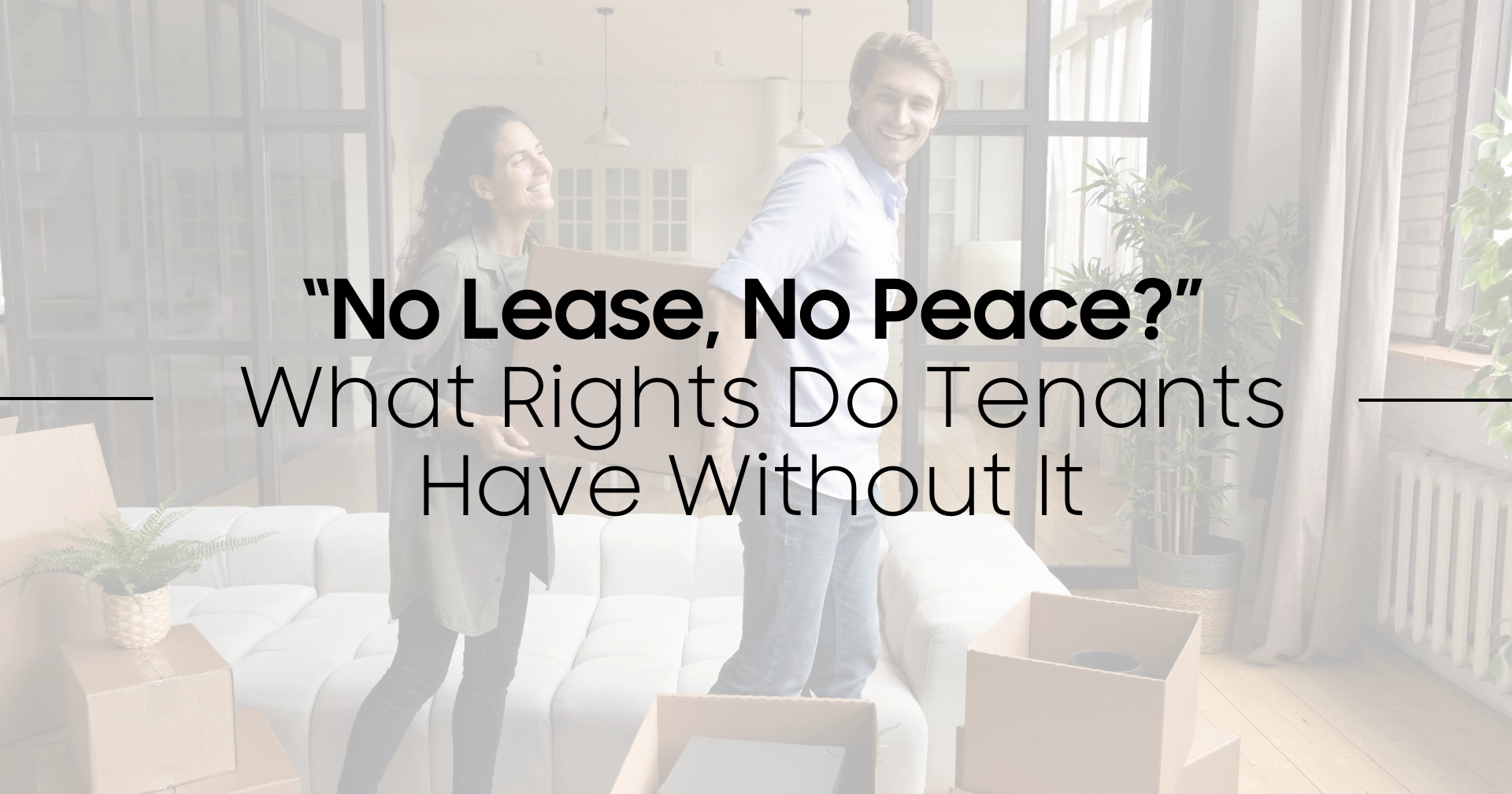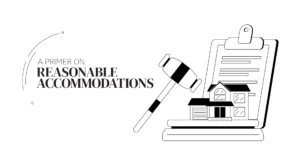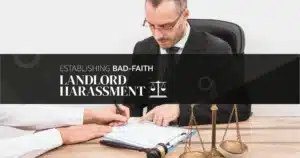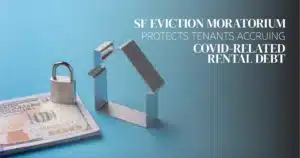What rights do tenants have without a lease? It sounds like a legal dead-end. But is it, really?
Maria had been living in a small back unit in South Central LA. There was no written lease. And she had no rent receipt.
Her landlord, an old friend of her cousin, wanted her gone after a disagreement. He told her to leave in three days.
There was no formal notice and no paperwork. There were only a few words. Maria didn’t pack. She went online instead.
Is she a squatter? A guest? Or a legal tenant? And what rights do tenants have without a lease in California?
More renters face this than you’d think. People rent through Craigslist. Room with relatives. Crash with friends. And things go south.
Is verbal rent enough? What if you’ve lived somewhere for six months? What about utilities in your name? What do California laws say?
Let’s say you’re paying rent every month. But there is no lease. Are you safe from eviction?
You might not have a lease. But you still have rights.
So what happens if you don’t have a lease?
I Just Got Kicked Out. No Warning. No Paper.
Your Landlord Says You’re Not a Real Tenant
They say: “You never signed anything.” They say: “You’re just crashing.”
In Dufour v. Allen (CA App Ct, Jan 2024), the court reviewed a case where the tenant rented a garage conversion for 11 months. There was no written lease, but the tenant paid rent by check. When the landlord tried to evict without notice, the court rejected the eviction.
The court held the tenant was month-to-month.
The Court Sees Rent, Not Paper
Under California Civil Code §1944, verbal rental agreements still hold legal weight. If you pay monthly, the law presumes a month-to-month tenancy. That means a landlord must give a 30- or 60-day written notice to evict.
If they try to lock you out, that’s illegal.
I Paid Rent. But Now They Deny Everything.
Landlords Pretend You Never Paid a Dime
They act like it never happened like Venmo doesn’t leave trails. In Baca v. Kuang (CA App Ct, Feb 2025), a landlord tried to erase the tenant’s entire rent history. There was no lease, but the tenant paid six months of rent via Zelle. The landlord claimed it was “donations.” The court didn’t buy it.
The judge ruled that the payments proved a real rental relationship. Kuang was month-to-month, which meant formal notice was required before eviction.
Track Everything, Even Without a Lease.
Keep screenshots, save texts, and record rent paid—Venmo, Zelle, checks, pigeons—whatever it is. Your proof is your protection.
In Baca v. Kuang, the court highlighted how digital payment trails are solid evidence. No lease doesn’t mean no tenancy. And no lease doesn’t mean your landlord gets to lie.
They Called Me a Squatter. Police Showed Up.
Landlords Skip Notices and Call It Trespassing
Landlords often bypass formal eviction steps. They call the cops and accuse tenants of squatting, but courts don’t always agree.
Take Garcia v. Tenorio (NY Civ Ct, 2024). Here, tenants had no written lease, but they paid rent monthly. The landlord tried a shortcut: a 14-day notice, not the required 30 days. The court wasn’t impressed. It ruled the notice insufficient. Tenants stayed put.
So what was the lesson from it? Proper procedures matter. Tenants have rights even without a lease.
Month-to-Month Tenants Are Not Trespassers
California law defines tenancy by action, not paper. If you’ve paid and occupied the space, you’re likely month-to-month.
To evict, landlords must use legal channels, not police intimidation.
The Heater Broke. The Landlord Shrugged.
Landlords Refuse to Fix Anything
Landlords often think no lease means no responsibility—no plumbing, heat, or repairs. They believe they’re off the hook. But the law says otherwise.
In Green v. Superior Court (Cal. 1974), the California Supreme Court established that all residential leases carry an implied warranty of habitability. It means landlords must maintain livable conditions, lease or no lease. Tenants enduring uninhabitable conditions can challenge their landlords.
Landlords must note that neglecting repairs isn’t only unethical; it’s illegal. Tenants have rights, and courts are upholding them. Ignoring this can lead to legal repercussions.
Habitability Laws Apply to All Tenants
California Civil Code §1941.1 sets minimum standards for housing. That includes working plumbing, heat, and no mold.
No lease? Doesn’t matter. If you live there and pay, you’re protected.
Three Days? That’s All I Got?
Landlords Use Fast Eviction Tactics
Landlords sometimes attempt swift evictions, issuing a 3-day notice, even without a formal lease. But courts often scrutinize these tactics.
Consider Bevill v. Zoura (Cal. Ct. App. 1994). In this case, the landlord served a three-day notice demanding over $40,000 in unpaid rent, including rent due more than a year prior. The tenant didn’t pay, leading to an unlawful detainer action. But the court found the notice defective. It improperly demanded rent beyond the one-year limit. So, the court dismissed the unlawful detainer.
It shows that proper notice is crucial. Missteps can derail eviction efforts, and landlords must adhere strictly to legal procedures.
Month-to-Month Still Means Written Notice
Tenant rights in California still require due process. That means a written 30- or 60-day notice based on how long you’ve lived there.
Three-day notices apply only to non-payment or lease violations.
I Had Mail. They Said I Was a Guest.
Landlords Say You’re a Guest, Not a Tenant
Landlords sometimes claim you’re only a guest. No lease? No tenant rights, they argue. But courts often see it differently.
Take DeZerega v. Meggs (Cal. Ct. App. 2000). In this case, the occupant had no formal lease but lived in the unit with the landlord’s consent. The landlord tried to evict without cause. The court ruled in favor of the occupant, emphasizing that consented occupancy establishes tenancy rights.
Landlords, beware: actions can establish tenancy, even without paperwork. Tenants know this: a lease doesn’t solely define your rights.
Proof of Life Means Proof of Tenancy
Tenant rights exist in California even without a lease. These rights include utility bills, official mail, rent texts, and length of stay.
More proof = more protection.
They Said No Lease, No Lawyer.
Tenants Feel Powerless in Legal Fights
Tenants often feel powerless without a formal lease. No lease means no protection, right? Not necessarily.
In Hilaly v. Allen (Cal. App. Dep’t Super. Ct. 2019), the tenant, Ms. Allen, had an oral agreement and occupied her unit for nearly 40 years without a written lease. When new landlords, the Hilalys, attempted to evict her, they presented a rental questionnaire she had completed, aiming to use it as a binding confirmation of her leasehold rights. The court found that the questionnaire did not constitute a formal contract and emphasized that Ms. Allen’s longstanding occupancy and oral agreement provided her with tenant rights.
This case underscores that tenant protections can exist beyond written agreements. So, tenants must know that a piece of paper isn’t the only thing that defines your tenancy.
Legal Support Still Applies Without a Lease
Tenant lawyers can still represent you, even without a written contract.
Courts now consider payment, residency, and communication.
This Is a Lease-Free Warzone. Are You Ready to Win?
What rights do tenants have without a lease? A lot, actually. You have legal ground if you’ve paid rent, occupied the space, and kept receipts. Month-to-month tenant rights apply. Eviction must follow the law. Repairs are still required.
But who’s really on your side when the pressure starts?
At The Law Firm for Tenant Rights, Inc., we don’t care if your lease is written in pen, pencil, or emoji. We care about facts.
We fight for tenants like Maria. Tenants like you. No lease? No problem.
Got a sketchy eviction notice? Is your landlord ghosting on repairs?
What’s your rent story? What proof do you have? What will a judge say about your case?






